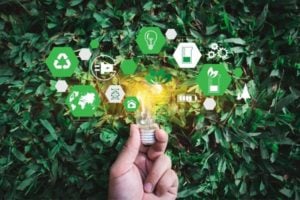Deadline: 23 April 2025
The European Commission is accepting proposals for the Improvements in Lifetime and Cost of Low Temperature Electrolysers by Introducing Advanced Materials and Components in Stacks and Balance of Plant (HORIZON-JU-CLEANH2-2025) call under the Horizon Europe (HORIZON) programme.
According to IEA’s Global Hydrogen Review 2023, the global hydrogen production in 2022 was dominated by the use of fossil fuels while low-emission hydrogen production was less than 0.7% of the global production. A large number of low-emission hydrogen production projects are under development with projected annual production of up to 38 Mt by 2030. Among these, electrolysers projects dominate and aim at reaching 70% of low-emission hydrogen production. Particularly, Europe announced to account almost 30% of such electrolytic hydrogen projects by 2030 and is focused on projects boosting the supply of low-carbon and renewable hydrogen.
Given hydrogen’s potential as a clean energy vector and chemical feedstock, and its applicability across various sectors including transportation, industry, and integration of renewables in the power grid, optimising the efficiency and longevity of electrolysers is of paramount importance. This necessity gives rise to the significance of this topic, aimed at developing advanced materials and/or components for the stack and BoP (Balance of Plant), by understanding and mitigating the degradation mechanisms of low temperature electrolyser components, while at the same time further improving their performance and reducing their reliance on critical raw materials (CRM). By focusing on the development and integration of advanced materials in stack, and BoP components that don’t induce degradation or reliability issues or even mitigate degradation, proposals are expected to make a substantial contribution to prolong the lifetime of low temperature electrolysers and demonstrate cost reduction.
Scope
- The scope of the topic is to address the lifetime, performance and cost of low temperature electrolysers at system level by developing, designing and testing advanced functional and structural materials and/or components for the cell, stack, and BoP.
- The topic seeks to enhance the performance and durability of low temperature electrolysers by addressing not only the inherent degradation of the cell/stack itself but also the degradation that might occur on the stack due to interactions with BoP components. For instance, issues such as corrosion and leaching out of ions from piping that can contaminate the feed water, or ripple effects and electrical failures from power converters that can significantly shorten the stack’s operational life.
- The main objective is to develop advanced cell and stack materials and BoP components that don’t induce degradation or reliability issues or even mitigate degradation and improve overall system durability.
- The proposals should address the following elements:
- Investigate and further develop advanced materials for cell, stack, and BoP components to further increase performance and extend the lifetime of low temperature electrolysers;
- Optimise BoP components and architectures to minimise their impact on stack degradation and improve overall system performances and lifetime; also taking care of footprint of those elements in the view of designing future GW size plants;
- Validate novel solutions in relevant testing conditions to demonstrate their effectiveness in improving the lifetime compared to the baseline. The baseline should match state-of-the-art at the start of the project and be substantiated in the proposal. Additionally, modelling activities may be employed to support these validations;
- Demonstrate the improved lifetime at system level using an industrially relevant stack of > 20 kW by testing under relevant conditions for a minimum of 2000 hours. Validation should be compatible with system level. It is expected that proposals explain their approach towards this. An example could be the use of a hardware-in-the-loop approach to simulate the operation of system components that are not part of the targeted development;
- In line with the TRL level aimed at the end of the project, the targeted level of hydrogen purity and outlet pressure should be indicated and taken into account when performing cost-calculations;
- Describe how the dynamic conditions arising from connection to the renewable grid will be addressed and justify the chosen approach (for example simulation of fluctuating power input from renewable energy);
- Sustainability, circularity and recycling aspects for the chosen materials and their manufacturing processes and perform techno-economic and life cycle assessments for the chosen developments.
Expected Outcomes
- Project results are expected to contribute to the following outcomes:
- Development of advanced cell, stack, and BoP components, including functional and structural materials exhibiting an improved performance and engineered to counteract degradation mechanisms;
- Increasing the lifetime of electrolysers;
- Innovations that reduce the need for CRM and/or Platinum Group Metals (PGM);
- Improved circularity of materials and components;
- Increase understanding of relevant degradation mechanisms of materials and/or components and demonstrating effective mitigation using developed materials and/or components.
Eligibility Criteria
- Entities eligible to participate:
- Any legal entity, regardless of its place of establishment, including legal entities from non associated third countries or international organisations (including international European research organisations) is eligible to participate (whether it is eligible for funding or not), provided that the conditions laid down in the Horizon Europe Regulation have been met, along with any other conditions laid down in the specific call/topic.
- A ‘legal entity’ means any natural or legal person created and recognised as such under national law, EU law or international law, which has legal personality and which may, acting in its own name, exercise rights and be subject to obligations, or an entity without legal personality.
- To be eligible for funding, applicants must be established in one of the following countries:
- The Member States of the European Union, including their outermost regions:
- Austria, Belgium, Bulgaria, Croatia, Cyprus, Czechia, Denmark, Estonia, Finland, France, Germany, Greece, Hungary, Ireland, Italy, Latvia, Lithuania, Luxembourg, Malta, Netherlands, Poland, Portugal, Romania, Slovakia, Slovenia, Spain, Sweden.
- The Member States of the European Union, including their outermost regions:
For more information, visit EC.























